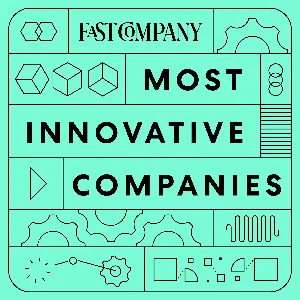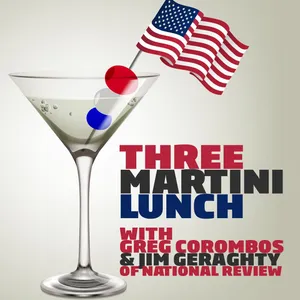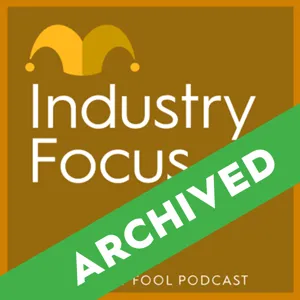Podcast Summary
Stories of Challenging Work Environments in Hospitality Industry: Maintaining a professional atmosphere is crucial in the hospitality industry, where physical altercations and unique challenges can occur.
The hospitality industry, particularly in the service jobs sector, can have challenging work environments. Yasmin Gagne shared her experience of working as a line cook in a beach club in Rhode Island, where she witnessed a physical fight between the sous chef and executive chef. This incident served as a reminder of the importance of maintaining a professional atmosphere. Chip Wade, the CEO of Union Hospitality Group, also shared stories about the unique challenges of the hospitality industry during their interview. Additionally, the United Auto Workers deal made headlines as a significant business news story of the week.
Union activity and strikes on the rise, with Drew Barrymore as a notable figure: Union activity has surged, particularly in entertainment, with Drew Barrymore, an actress and union advocate, leading the charge amidst legislative challenges to union support
There has been a significant increase in union activity and strikes across various industries, including entertainment, as a response to anti-union decisions and legislation. This trend started around the time of the Janus v. AFSCME Supreme Court decision in 2018 and has continued through the summer of 2023. Drew Barrymore, an actress and granddaughter of a former Actors' Equity Association president, has become a notable figure in this context due to her family's history with union matters. The Actors' Equity Association is the union for stage actors and stage managers, and Ethel Barrymore, Drew's grandparent, made a deal with Warner Brothers that led to the creation of SAG. The current strikes and union activity come amidst legislative challenges to union support. While some public figures have crossed picket lines, others like Drew have become symbols of the union cause.
Public figures' reactions and expectations: Public opinions towards figures can shift rapidly, with Drew Barrymore facing backlash and Bill Maher facing less criticism, highlighting the importance of consistency and authenticity in public statements.
The expectations and reactions towards public figures, even beloved ones, can drastically change based on their actions and statements, especially during times of social and political upheaval. Drew Barrymore, once admired for her support of causes, faced backlash for her seemingly contradictory stance on a current issue. Meanwhile, Bill Maher, known for his edgy commentary, faced less criticism. Additionally, the ongoing conflicts in Ukraine and the climate crisis continue to impact lives and global discussions, despite decreasing media attention. Russia's response to international criticism mirrors that of a defensive and misunderstood individual, while advancements in technology, such as shopping on TikTok, and marketing tactics, like color-changing toothpaste ads, continue to shape consumer behavior.
Online behavior vs. real life: People's online actions can create a false impression of their financial situation or achievements. Focus on real-life accomplishments and experiences.
The speaker's online behavior, including searching for luxury goods and reading sensational news articles, can give others a false impression of their financial situation. Meanwhile, Union Square Hospitality Group, led by CEO Chip Wade, is a renowned hospitality company with a diverse range of fine dining restaurants and newer concepts like Daily Provisions. Despite the speaker's fascination with sea creatures attacking people and encroaching on their habitats, she is looking forward to interviewing Chip Wade about staying cool in a hot kitchen. This conversation serves as a reminder that online appearances can be misleading, while real-life achievements and experiences are more substantial.
Transitioning from large chains to chef-driven organizations: Adapting to foster creativity and autonomy in chefs leads to new ideas, menus, and recipes, but requires discipline and structure for effective execution and growth in the hospitality industry.
The hospitality industry offers various opportunities for growth and development, from starting at entry-level jobs like cleaning parking lots at Dunkin' Donuts to rising through the ranks to become a COO and EVP at a large chain like Red Lobster. However, transitioning from a large chain to a fine dining, chef-driven organization like Union Square Hospitality Group requires an adjustment to respecting and fostering the creativity and autonomy of chefs. This creative sparring leads to new ideas, menus, and recipes, but also necessitates the implementation of discipline and structure to execute effectively and fuel growth. This journey showcases the importance of passion for food and service, as well as the willingness to adapt and learn throughout one's career in the hospitality industry.
Competing in the fine dining industry with economic challenges: Union Square Hospitality Group addresses high rents and labor costs through competitive wages and revenue sharing, while emphasizing teamwork and shared successes.
Operating a fine dining restaurant comes with unique economic challenges, particularly in large urban cities. These challenges include high rent costs, labor expenses, and the commitment to serving high-quality products. The pandemic has exacerbated these issues, with rents failing to stabilize and labor costs remaining high. To address these challenges, Union Square Hospitality Group remains competitive with hourly wages and offers revenue sharing for culinarians, porters, and dishwashers. The organization also emphasizes the importance of teamwork in the hospitality industry and ensuring that everyone shares in the restaurant's successes.
Creating a Strong Culture in the Kitchen: Effective leadership, clear expectations, daily reinforcement, engagement, communication, managing stress, and adding humor are crucial for a strong kitchen culture.
A strong and vibrant culture in a kitchen or restaurant setting is crucial for retaining top talent and ensuring success. This culture begins with strong leadership and clear expectations, reinforced through daily behaviors and celebrations. Engagement and communication are also essential for keeping the culture alive. Kitchens can be high-pressure environments, especially during new restaurant openings, and it's essential to have techniques for managing stress and staying calm. Personal experiences from the speaker include calling a time-out, heading into a freezer to compose oneself, and adding humor to defuse tension. The craziest kitchen stories often revolve around new restaurant openings and the chaos that ensues when guests forget that the staff is new and learning.
Leveraging Culinary Backgrounds for Leadership Roles in the Food Industry: CEOs in the food industry value leaders with culinary or restaurant backgrounds for their unique understanding of operations and commitment to great food experiences.
When building leadership teams at a company focused on food, having team members with a culinary or restaurant background can be a significant advantage. The CEO of this company looks for leaders who possess the capacity, commitment, and character to lead, and if they have prior experience in the restaurant industry, it adds a unique understanding of operations to their respective disciplines. The future of the company, Union Square Hospitality Group, is exciting with plans to expand beyond New York City, but it's too early to tell if they aim to replicate the success of a brand like Shake Shack. The CEO personally enjoys dining at DIG and Moneta Tavern, emphasizing the importance of great food experiences for leaders in the industry.
Personalizing dining experiences with data: Restaurants will collect guest preferences beyond contact info, enabling tailored service and marketing.
Importance of personalized customer experiences in the dining industry, enabled by advanced data collection technologies. The guest, who oversees innovative dining and hospitality companies, shares his excitement about the future of this trend. Instead of just collecting basic contact information during reservations, restaurants will soon ask about customers' preferences, such as favorite bourbons or wine colors. This data will allow servers to tailor their service to each guest, creating a more memorable and enjoyable dining experience. This shift towards personalization not only enhances the guest experience but also sets the stage for more effective marketing and targeted promotions. Overall, the use of data to personalize dining experiences is a key trend to watch in the hospitality industry.






